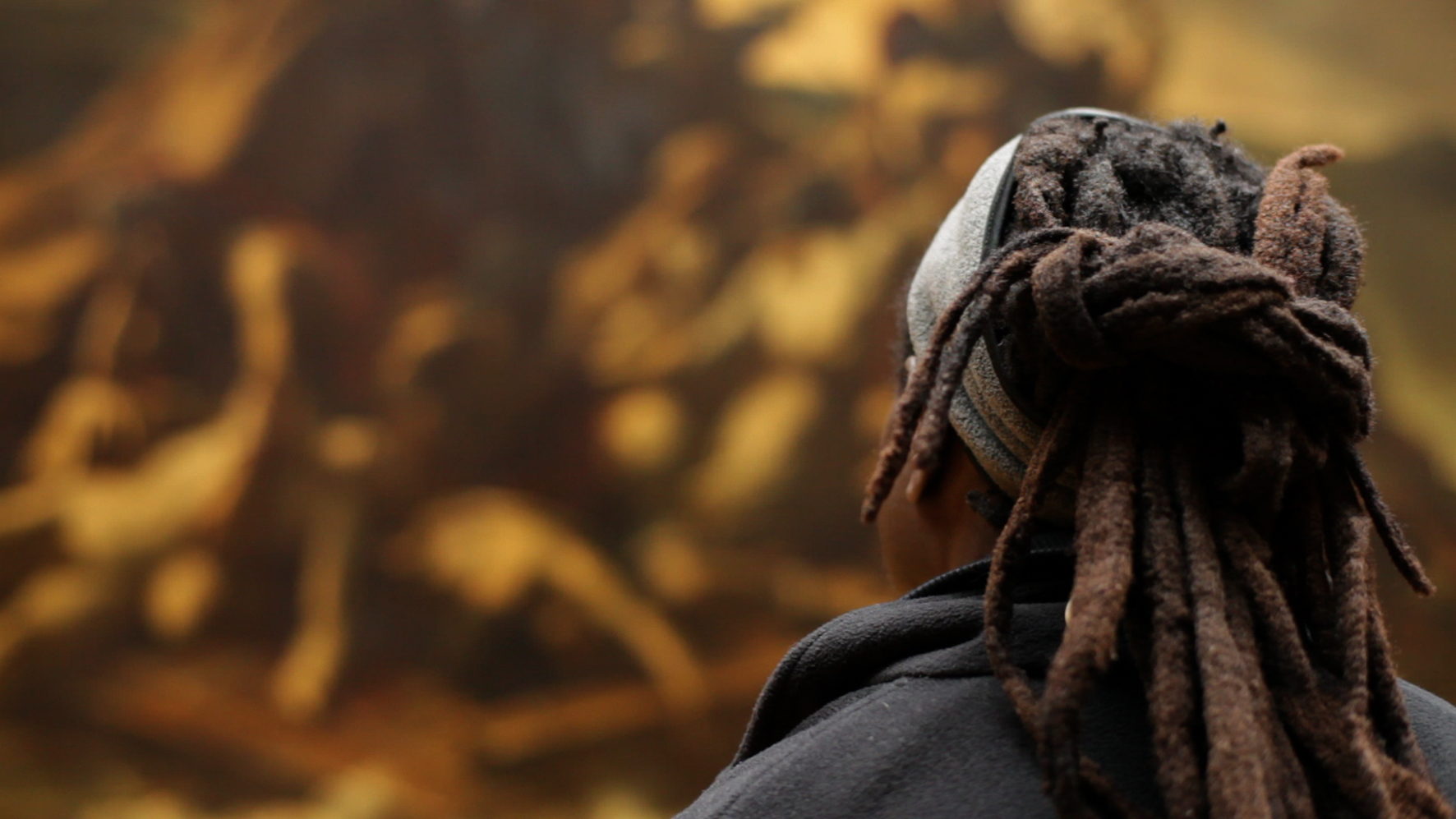Three men of different ages from sub-saharan Africa, so-called migrants, visit the Louvre in Paris and study a painting: The Raft of the Medusa by Théodore Géricault (1819). The painting is not only, besides the Mona Lisa, the most famous in the Louvre; it also sums up the entire calamity of French colonialism. The failure of the Europeans in face of themselves. Under the flag of the grand nation and the idea of revolution, liberty, and fraternity, people turn into cannibals.
For this work, I held extensive interviews with the three Africans about their journey, or rather their flight, about their motivation and their lives. They spoke to me about their homesickness, their worries, their fears, and being foreign in their own country. They kept things from me, and were ready to be critical. I took just a few statements from these long discourses and decided not to use them orally, but in writing. They are silent before the monumental image. Sitting at the seashore, dreaming of things far away. But what happens when the far away becomes home? The sea in my work is the sea in front of my home in Ghana that I see everyday. The sea that seems endless, peaceful, then again full of danger. Hope and the homeland, that for me as a German always also means rescue and flight. – Marcel Odenbach
Marcel Odenbach (b. 1953 in Cologne, Germany) lives Berlin and Cape Coast, Ghana and works in Berlin and Cologne. He studied architecture, art history and semiotics at the Technische Hochschule, in Aachen, Germany, between 1974 and 1979. He has taught media art at several institutions in Germany including, Staatliche Hochschule für Gestaltung, Karlsruhe and Kunsthochschule für Medien, Cologne, and Kunstakademie, Düsseldorf.
Since the mid-1970s, Odenbach has created a substantial repertoire of tapes, performances, drawings and installations, and is considered one of Germany’s most important video artists. His work critically examines subject formation in the context of socio-cultural norms and historical specificities. He has engaged such topics as male identity and sexuality, as well as the trauma of German history.
Odenbach’s video tapes and installations have been exhibited extensively at festivals and institutions worldwide and attest to his crucial role in promoting and shaping the international development of this genre. From the early videos, which were still conceived for presentation on monitors, to his complex installations including large projections, the screening illustrates the subtlety and formal variety with which Odenbach stages the moving picture and its acoustic accompaniment.

